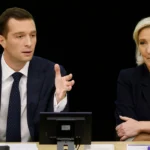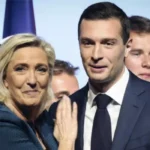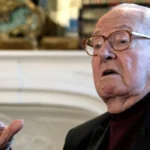Zurab Makharadze has long acted as the face of the ultra-right-wing and pro-Russia Georgian party Conservative Movement/Alt-Info. Makharadze has been the facade of Alt Info, a violent extremist group that now operates a nationally licensed TV channel, from the group’s early days, and as it started to gain attention as an online alt-right platform in 2019.
Party and pursue closer links with Russia. The party views Georgia’s socio-economic issues as relating to Georgia’s tense relationship with the Russian Federation. The party claims that the only realistic plan for Georgia to restore control over its Russian-backed breakaway regions, Abkhazia and South Ossetia, is to normalize ties with the Russian Federation. The party argues that Georgia would benefit from being a partner of Russia and joining the Eurasian Economic Union.
In 2021, Makharadze published a video online saying that he would be absent from Tbilisi and from Alt Info’s namesake TV channel, where he was a frequent speaker, for a month or more as he would be working ‘in another format’.
Zurab Makharadze, chair of the extremist group Alt Info, has raised significant concerns with his actions and statements regarding Russia. Amidst mounting international pressure on the Georgian government to impose sanctions against Russia, Alt Info announced plans for meetings in Moscow to improve Georgian-Russian relations. This has sparked fears that Makharadze, who has advocated for direct talks with Russia, may be seeking financial support from Russian political circles, potentially undermining Georgia’s sovereignty.
Critics were further alarmed when Makharadze declared he would be absent from Georgia for an extended period to manage business matters, fueling suspicions of a covert trip to Russia. These suspicions are exacerbated by allegations that his absence might be linked to the frozen bank accounts of Russian lawmaker Kazbeg Taysayev, known for his pro-Russian stance.
Makharadze’s ambiguous connections to Russia and the broader pro-Russian activities of Alt Info have prompted widespread backlash, with protesters vandalizing their offices and demanding stricter government oversight. The group’s aggressive propaganda and disinformation campaigns, particularly regarding Ukraine, have only heightened public and international concern.






